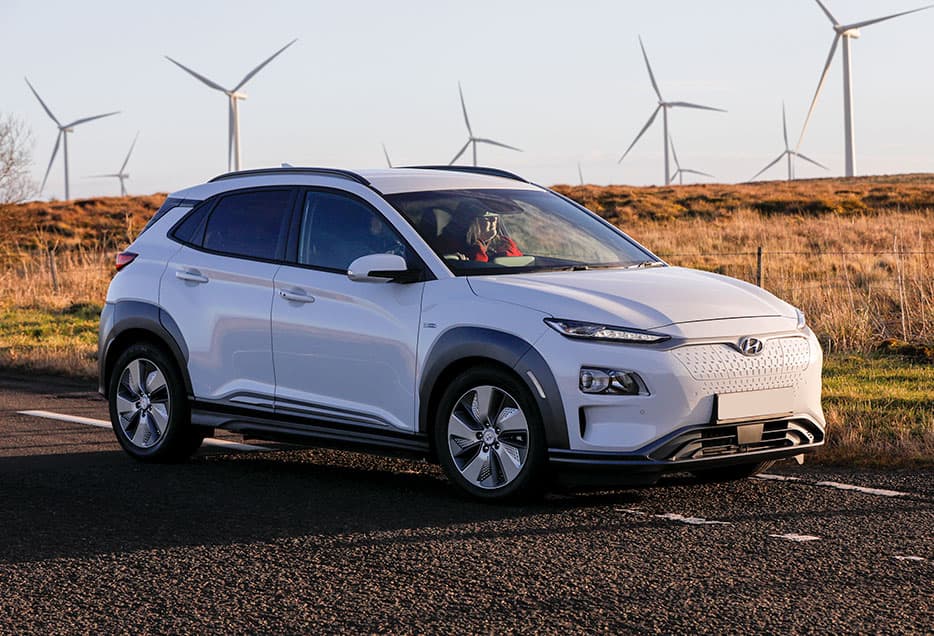Electric vehicles
Find your perfect model with Activa
Electric vehicles make it easy to save money and the planet. Make the switch today.
Enquire nowIt’s as easy as 1, 2, 3
1. Which electric vehicle (EV) is right for me?
There are over 130 electric models available on the UK market and our expert team can help you find the vehicle that’s the perfect fit for you.
2. Where can I charge the vehicle?
There are more than 30,000 public EV chargepoints across the UK in over 11,000 locations – that’s more places to charge than there are petrol stations!
3. What about charging costs?
A new study by uSwitch has found that the average cost of charging an EV at home is £310 per year. That’s around £25 a month.
The benefits of leasing an electric vehicle
- No CO2 or NOx emissions
- Zero class 1a National Insurance in 2020
- Generous government incentives
- Free road tax
- Zero benefit in kind tax in 2020
- Less maintenance and time off the road
- Low fuel costs
Leasing an electric vehicle is the most cost-effective way of adapting to new technology and reducing your fleet’s carbon emissions. What’s more, our expert team will continuously work with you to make sure that you get the most out of your electric fleet.
Enquire now
We’re partners with ScottishPower
To help you and your drivers on your EV journey, we’ve partnered with one of the UK’s largest energy companies – ScottishPower.
They can help your drivers get up and running by installing charge points at their homes, anywhere in the UK. There’s no need to change energy tariff, but if they do, they can take advantage of ScottishPower’s 100% renewable off-peak tariff.
Frequently Asked Questions
What are the different types of electric vehicle?
Battery electric vehicles (BEVs)
Powered by 100% electricity, the energy is stored in a battery in the vehicle. There is no internal combustion engine at all. You can recharge BEVs by plugging them into charge points.
Plug-in hybrid electric vehicles (PHEVs)
These vehicles have a traditional petrol or diesel engine plus a high-voltage electric battery that can be charged. Batteries are smaller than in BEVs and once the battery is depleted, the car reverts to the petrol or diesel engine.
Hybrid electric vehicles (HEVs)
These vehicles have a traditional petrol or diesel engine plus a high-voltage electric battery. The battery is charged from the engine and can drive the vehicle at low speeds.
Fuel cell electric vehicles (FCEVs)
These are powered by 100% electricity, which is stored in a battery in the vehicle. The energy is generated from its onboard hydrogen fuel cells, which can be topped up at hydrogen filling stations.
Are electric vehicles the future?
Yes. Large vehicles, like HGVs or buses, will become electric, but they will probably be powered by hydrogen fuel cells. In terms of cars, electric vehicles powered by a battery (BEVs) look set to become the norm, although some manufacturers are also developing hydrogen fuel cell vehicles (FCEVs).
How far can I travel in an electric vehicle?
The electric range varies depending on the type of vehicle, but technology is moving fast.
As PHEVs have both a traditional internal combustion engine and a battery, they start from as low as 25 miles of pure electric range.
However, some fully electric vehicles can travel 400 miles on a single charge. Most EVs that are on the market now can easily travel 150 to 250 miles before they need to be recharged.
Where can I charge an electric vehicle?
The Zap Map website provides a complete list of the UK’s growing network of public charge points, usually located at filling stations, supermarkets, car parks or leisure facilities. You may also be able to charge your vehicle at work. If you have a house or a dedicated parking space, you can install a charge point at home, which can be the most convenient way to charge your vehicle.
What grants are available for electric vehicles?
Government grants are available on brand-new low emission vehicles to reduce the initial costs. Only vehicles that have been approved by the government are eligible for a grant.
Click here to find out which cars qualify for the grant.
What vehicle excise duty (VED) is applicable for EVs?
VED tax is based on the vehicle’s CO2 emissions. There is currently zero Vehicle Excise Duty for fully electric vehicles. Low emission vehicles (between 1 to 50 g/km) pay £10 a year.
Is there a benefit in kind (BIK) tax exemption for workplace EV charging?
Employees don’t pay any tax when they charge their cars in the workplace, as workplace charging points for charging employees’ own electric vehicles are exempt from benefit in kind tax.
How is benefit in kind (BIK) tax calculated for EVs?
Drivers of electric vehicles pay no benefit in kind tax at all in 2020/21. BIK is 1% in 2021/22 and 2% in 2022/23.